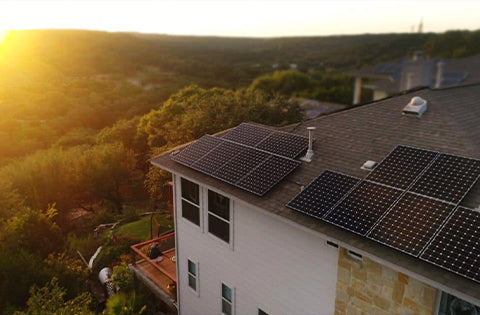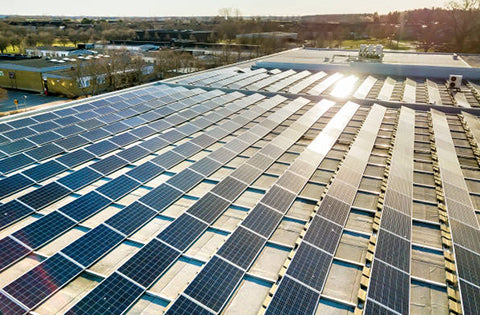Solar pumping systems are transforming the agriculture sector by providing farmers with electricity from pumping water to harvesting crops. It has been playing a crucial role in enhancing the livelihoods of small to marginal farmers by increasing the chances of crop yields in places with insufficient electricity supply.
Harnessing solar energy has faced numerous challenges including high initial investment and being weather dependent. However with the advancements in power electronics and government policies, it has become possible to tap solar energy more efficiently.
WHAT ARE SOLAR PUMPS?
A solar water pump functions with the help of energy generated from sunlight .This energy is converted into mechanical power assisted by photovoltaic cells, that are directly attached to an electric motor. The entire system runs without the need of any external source of power other than the energy gathered naturally during daylight hours.
COMPONENTS OF SOLAR WATER PUMPS AND WHAT YOU NEED TO KNOW
If you’re thinking about investing in solar water pumping systems, knowing about the components will help in understanding how the benefits outweigh the costs.
An array is a collection of solar panels which is made up of smaller units called photovoltaic cells that converts sunlight into electricity.
How many hours of sunlight do the solar panels need to work the best?
Panels are most effective when direct sunlight is present and the sun is at its highest position. In this case, the solar panels should be able to function at their best between 10 AM and 3 PM.
Do solar panels work in rain?
Solar panels are good at working in direct or indirect sunlight, although direct sunlight is the best option. Solar panels can also work in cloudy environment.
How to maintain the solar panels?
Solar panels do not require any maintenance or servicing.

The harnessed electricity is stored in solar batteries.Consistent power can be generated to the pumping system during times when the load demand exceeds the energy received from the solar panels. They provide the benefit of instant reliable power.
Benefits of Solar Battery
Maximises Energy utilisation
Reliable Energy Source
- SOLAR PUMP CONTROLLER
The primary source of energy from the sun has variable intensity throughout the day. A solar pump controller provides a set amount of output even if the input is variable.It converts the DC power supply generated by PV Modules to AC Supply along with Variable Speed Drives to optimize the speed control of the pump set.
Benefits of using a solar pump controller
Easy to install and Maintain
Smaller Footprint
Environment Friendly
- SOLAR PUMP
Water pumps used in the solar water system are classified by their placement underwater or above the waterline or by the electricity they use DC or AC.
Water bodies with a depth of at least 10 meters require submersible pumps. In shallow water bodies such as ponds and wells, surface pumps can be used.A DC pump runs on a motor that operates with direct current; There is no battery or inverter is needed.To operate an AC pump, an inverter must be installed to convert the DC to AC.
- OTHER COMPONENTS
Other components include Pipes and cables.
The above mentioned solar water components function together for an efficient water management solution.It is advisable to buy all the components from a single solar pump manufacturer to maximise the efficiency. Therefore, if a fault occurs in any part of the system it can be easily replaced.
THREE KEY BENEFITS OF SOLAR PUMPING SYSTEM IN AGRICULTURE
Listed below are some reasons why you should install solar pumping system in agriculture:
- RENEWABLE SOURCE OF ENERGY
Solar-powered irrigation has gained popularity worldwide as a way to promote a renewable, climate-friendly energy source.The agriculture ecosystem can be preserved with the right use of water and energy. It is an efficient alternative to fuel and electricity, there reducing maintenance costs.
- FLEXIBILITY,ACCESSIBILITY AND MULTPURPOSE APPLICATION
A solar-powered irrigation system can be set up for very little capital investment, and can be upgraded later based on the requirements of the land. The surplus energy it reserves can be used for water filtration plants, running mills, cold storage units, and farmers can also sell the excess power , by linking it to the electricity grid.
- SELF REGULATED IRRIGATION
The solar-powered irrigation system has advanced developments that allow it to be self-regulating based on crop water requirements and environmental conditions.
For more information, please click here: https://isolarparts.com
Twitter: Solarparts Instagram: Solarparts
Tumblr: Solarparts Pinterest: Solarparts
Facebook: Shenzhen Solarparts Inc
Email address: Philip@isolarparts.com




